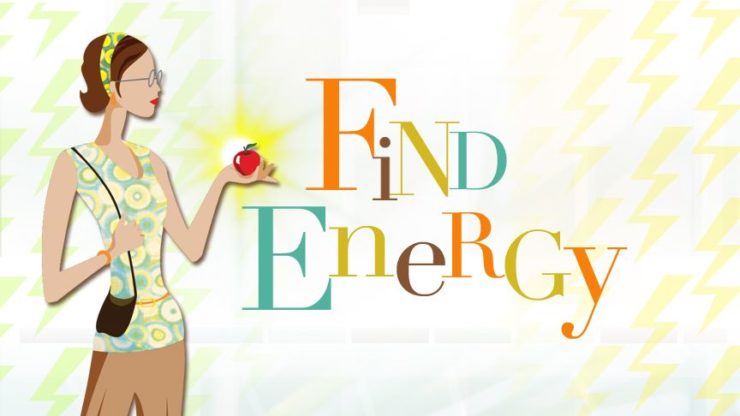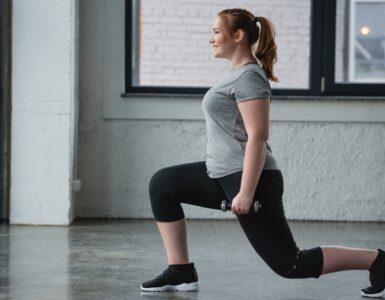Fatima Doman, Life coach and Franklin Covey executive show you how to achieve and maintain your peak performance.
Peak Performance is about optimizing energy and determining when you perform at your best. Why does this matter and how can it impact daily life?
We tend to value limited resources, i.e. time and money. We focus great efforts on how to better manage these resources. We should consider our energy the same—a highly valuable resource to be managed wisely. In fact, our energy is our most precious resource, it powers everything we do. I suggest we give better thought to where it comes from and hold ourselves accountable for not wasting it. Professional athletes spend about 90% of their time training, the average person, less than 10%. What if we invested more time in our own energy management and continuous improvement? In other words, we can “train” for greatness.
Consider American swimmer Dara Torres. She has participated in five Olympics, taking home 12 medals including four golds. At the age of 41, her time in the event that got her to the Beijing Olympics in 2008—the 100-meter freestyle–was 2.47 seconds faster than her Olympic time in 1988 at age 21. It did not make sense that she could compete at her age in the Olympics. But she prepared herself both mentally and physically by following not only a rigorous schedule of swim training, but by surrounding herself with a team of coaches for every facet of her life that would impact her performance. She did yoga, meditated, and engaged in other modalities that boosted focus and concentration. She made her optimal experience happen. There are thousands of opportunities for each of us to challenge ourselves to do our best in similar ways.
Poor energy management example: End of the year budget crunch: long hours, little sleep, eat from vending machine, feel intense deadline pressure, increasingly negative, irritable. Critical of everyone and everything, resulting in damaged relationships.
You say we should take the time to “know ourselves” and determine when we perform at our best?
It’s very helpful to understand what time of day you naturally have the most energy? Reserve your most important and creative work for this time period. For me, it’s early in the day—I feel refreshed, relaxed from sleep and tend to have better ideas in the morning. If I make a habit of allowing myself more time in the morning for creative tasks because I perform better.
What about multi-tasking?
Multitasking is a perfect example of poor energy management because you are not fully engaged in anything and partially disengaged in everything—checking e-mail and talking with someone at the same time. It’s okay to multi-task in things that are not very important. But, one’s full and best energy should be invested and aligned with anything that contributes to our mission and purpose. It optimizes energy to set boundaries: no phone calls during dinner, no checking e-mail after a certain time.
You talk about energy being four dimensional?
Our energy is multi-dimensional. It involves the body, mind, heart and soul. To perform at the highest level under pressure requires full engagement of all four areas. We perform better when we are physically energized, emotionally connected, mentally focused and fully aligned with what matters most to us.
Let’s talk about the first dimension, the body. You say there are principles of recovery, hydration, nutrition and exercise to consider?
The healthier you are, the better you will perform. Recovery is essential to maintaining energy. All great athletes know the value of critically timed breaks in sport. Everyone has experienced consequences for not recovering energy. Research shows we need at least 8 hours of recovery each day. For most, the best rhythm is up early (with the sun), and to bed after dark because this encourages the body to produce melatonin, a deeply restorative sleep hormone and powerful antioxidant.
Next, hydration and proper nutrition are essential. For optimum functioning it’s important to hydrate every 30-60 minutes—the brain needs hydration to think clearly and the muscles and spine are more prone to stress injuries without it. Studies also suggest we metabolize calories about 24% more efficiently when we are well hydrated—an added benefit.
Regarding nutrition, to maintain high energy it’s best to eat about 5 small meals throughout the day—made up of whole foods–avoid processed foods because of the chemicals and dyes which can leave you with foggy thinking and tired. Every meal should contain some high quality protein, such as nuts, eggs or fish. People mistakenly think grabbing a candy bar from the snack machine will give them energy, but the fleeting energy comes at a high price, the inevitable sugar crash. This energy is not sustainable. Overeating creates energy depletion as well–the “food coma” after a buffet. Eating often and light is the best strategy—keeps energy consistent. I suggest my clients eat away from their desks, eat sitting down for better digestion, and carry nutritious snacks and a water bottle with them at all times—it’s the best way to avoid the junk food or overeating trap.
Last but not least, get up and MOVE. We were designed to move–sitting at a desk or watching hours of T.V. is not natural. It’s best to get up and move every 90 minutes, for about 10-15 minutes. Take a walk, practice deep breathing or stretch. Vigorous exercise is important–when we lift weights or push ourselves in the pool, we are stressing our bodies in a good way, which builds reserves. Aim for at least three cardio workouts and two strength training workouts each week.
What are some ways to find more energy using our mind?
We’re talking about focus, concentration, lifelong learning and positive thinking here. I ask my clients, what topics or projects give you the most energy? What do you love doing that really interests you, vitalizes you? Challenge is necessary for growth, purposeful stress helps build capacity. Recovery and learning from the stress is when growth occurs. In some cases our greatest storms have become our greatest gifts. Principle: If you want to get more out of something, you have to put more effort into it. You are more likely to die in the first six months of retirement than at any other time in life. People who retire to a life of leisure in essence “check out”. Never retire from projects that fill you and give you a sense of meaning and purpose.
What do you suggest for the heart area and the soul area?
For the heart, it’s about creating healthy, lasting relationships. What relationships give you the most energy? Make time for those relationships. Is there a relationship that needs attention or that has begun to drain you? Take time to nurture or heal this important relationship, or decide to move on.
And last but not least, the soul. I ask my clients: What gives you a sense of meaning and purpose in life? What connects you to something greater than self? It’s energizing to set some time aside every morning and every evening to reflect on your source of meaning and purpose (prayer, meditation, yoga, nature).
Finally, once you know what your optimum energy characteristics are…learn how to make them positive rituals in your life. Positive rituals ensure that you do the right thing at the right time with your energy. I suggest that people look at these four areas and think of a couple of new rituals in each area that will increase their energy. We know that it takes about 30 days to make or break a habit. Commit to doing these new habits for 30 days. Most likely after 30 days, the new habits will become effortless and you will experience much greater energy.
Coaching Power Questions:
What are three things you couldn’t wait to get to each day?
What are three things you dreaded and constantly wanted to avoid?
What was the time in your life when you felt the most energized?
What was a time in your life when you felt the least energized?
Fatima Doman is passionate about coaching others to succeed and in addition to her work with Franklin Covey, runs Ascend Coaching, her personal coaching business.
You can contact Fatima at (435)513-5331















Add comment